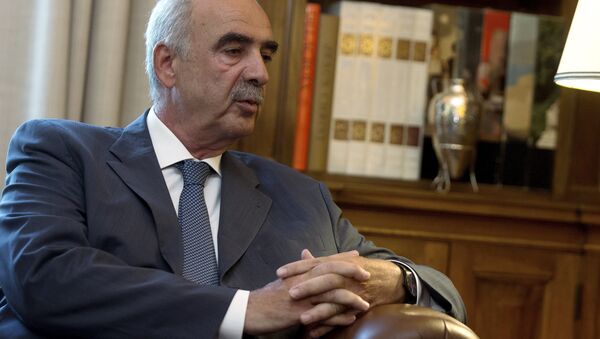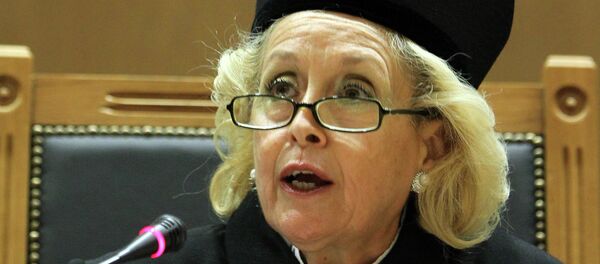Tsipras announced his resignation on August 20 to pave the way for early elections in a bid to secure popular support for his stance on the new 86-billion-euro ($95-billion) bailout package with the country's creditors.
Following Tsipras’ resignation, Greek President Prokopis Pavlopoulos on Friday granted the leader of Greece's official opposition, Meimarakis, a mandate to form a new government. However, Meimarakis failed to take advantage of the three-day window to form a ruling coalition.
According to the article, in his speech addressed to the conservative party’s deputies, Meimarakis wondered why the prime minister did not seek snap elections before agreeing to the new bailout, but only after the proposed deal had been ratified.
The ruling Syriza party, led by Tsipras, had promised to revise Greece’s austerity measures, unpopular with the Greek public, after securing victory in the January election.
In a nationwide referendum in July, the country voted against a new bailout deal with its international creditors.
However, later in July, Greece's creditors signed an agreement with the country's government, approving a third bailout package for Athens in exchange for more austerity reforms that include tax increases and pension cuts.






